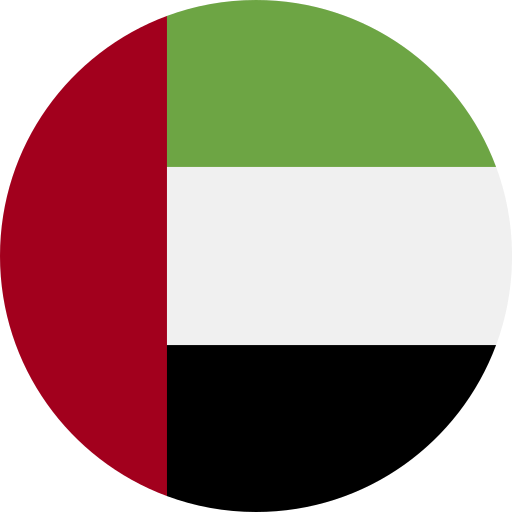Key Takeaways
- Cultural Nuance Matters: Mastering Arabic involves understanding regional dialects and cultural contexts, essential for effective marketing and communication in Arab-speaking markets.
- Growing Market Potential: Arabic-speaking countries represent some of the fastest-growing economies globally, with significant opportunities for investment and partnerships.
- Importance of Skilled Voice Talent: Utilizing voice artists who are fluent in local dialects enhances authenticity and engagement in media content, making messaging relatable to audiences.
- Localization Over Translation: Effective branding requires localized marketing strategies that reflect cultural values instead of direct translations, ensuring messages resonate deeply with target audiences.
- Digital Dominance: Social media and digital platforms play a crucial role in disseminating information across the Arab world; high-quality audio content is vital for standing out amidst competition.
- Addressing Challenges Proactively: Navigating the complexities of language diversity and technical translation barriers is key to building strong relationships with Arabic-speaking consumers.
Ever wondered how the Arabic language shapes the corporate and media industries? In a world that’s becoming increasingly interconnected, understanding this dynamic is crucial for businesses looking to thrive in diverse markets. The Arabic language isn’t just a means of communication; it’s a bridge connecting cultures and driving engagement.
As companies expand their reach into the Arab-speaking world, they face unique challenges and opportunities. From crafting culturally relevant marketing campaigns to navigating local regulations, mastering Arabic can set you apart from competitors. Dive into this article to uncover how embracing the Arabic language can enhance your corporate strategy and elevate your media presence, ensuring you resonate with audiences like never before.
Overview of Arabic Language in Corporate and Media Industries
The Arabic language plays a crucial role in the corporate and media sectors, acting as a vital connector between diverse audiences. In an era where globalization is essential for business growth, understanding Arabic can give you a significant advantage when entering Arab-speaking markets.
Companies navigating these markets face unique challenges. Crafting culturally relevant marketing strategies often requires fluency in Arabic nuances. It’s not just about translating content; it’s about conveying messages that resonate with local cultures and customs. You need to consider regional dialects, such as Modern Standard Arabic versus colloquial variations, to ensure effective communication.
In media industries, the demand for voiceover talent reflects this linguistic diversity. Voice artists bring scripts to life by infusing them with cultural context and emotional depth. When selecting voiceover actors for projects aimed at Arabic-speaking audiences, choosing professionals who understand local dialects enhances authenticity and engagement.
Moreover, businesses must comply with local regulations regarding advertising and media content. Familiarity with these legal frameworks helps prevent costly missteps that could hinder your market entry or brand reputation.
Embracing the Arabic language not only strengthens corporate strategies but also enhances media presence. By integrating skilled voice talents into your projects, you create compelling narratives that connect with viewers on a personal level. This approach fosters brand loyalty and cultivates long-lasting relationships within Arab-speaking communities.
Ultimately, prioritizing the Arabic language positions your business as an inclusive player in global markets while elevating your media productions‘ quality through professional voiceovers tailored for specific audiences.
Importance of Arabic Language in Global Business
The Arabic language plays a vital role in the global business landscape. It opens doors to diverse markets and fosters meaningful connections with Arab-speaking audiences. Embracing Arabic not only enhances communication but also strengthens your brand’s presence across regions.
Growing Markets in Arabic-Speaking Countries
Arabic-speaking countries represent some of the fastest-growing markets worldwide. Nations like Saudi Arabia, the UAE, and Egypt offer significant opportunities for foreign investment and partnership. The combined GDP of these countries exceeds $3 trillion, making them attractive for businesses looking to expand. Understanding the local language helps you navigate these markets effectively, ensuring your messaging resonates with potential customers.
Culturally Relevant Communication Strategies
Culturally relevant communication is crucial when engaging with Arabic-speaking audiences. Localizing your marketing content means more than just translating words; it involves adapting messages to fit cultural nuances and expectations. For instance, incorporating culturally appropriate visuals and idioms can greatly enhance engagement.
Utilizing skilled voice talent who understand regional dialects adds authenticity to your communications. A voiceover that captures local flavor can significantly elevate your message’s impact, making it relatable for listeners. Whether you’re creating advertisements or corporate videos, choosing voice artists familiar with cultural contexts ensures that your content speaks directly to the heart of the audience.
By prioritizing culturally relevant strategies and understanding market dynamics, you position yourself as a credible player in these vibrant economies while fostering lasting relationships within Arab-speaking communities.
Role of Arabic Language in Media
The Arabic language plays a critical role in shaping the media landscape across the Arab-speaking world. It influences not just content but also how messages connect with diverse audiences.
Arabic Media Landscape: Television and Radio
Television and radio remain dominant forms of media in the Arab world. Various channels broadcast news, entertainment, and cultural programming in Arabic, targeting specific demographics. Regional dialects enrich this content, allowing stations to resonate more deeply with local audiences. Voice talent trained in these dialects enhances authenticity, ensuring that messages feel genuine and relatable. Innovative programming that reflects cultural nuances captures viewer attention, making it essential for businesses to engage skilled voice artists who understand these subtleties.
Digital Media and Social Platforms
Digital platforms revolutionize how information spreads across Arabic-speaking regions. Social media channels are buzzing with activity, where engaging content reaches vast audiences instantly. The demand for effective communication on these platforms highlights the need for quality voiceover work that can convey emotions and context effectively. Voice actors adept at crafting compelling narratives help brands stand out amid fierce competition online. As companies embrace digital marketing strategies, they often rely on talented voice over artists who can deliver captivating audio that resonates with listeners while reflecting their brand values.
Utilizing the Arabic language effectively across various media forms strengthens connections with your audience, enhancing engagement and fostering loyalty within vibrant markets.
Challenges of Implementing Arabic in Corporate and Media Settings
Arabic’s complexity poses several challenges for businesses and media companies. Understanding these hurdles is essential for effective communication and engagement with Arabic-speaking audiences.
Language Diversity and Dialects
Arabic isn’t just one language; it’s a rich tapestry of dialects that vary significantly across regions. Each country has its own distinct variations, making it crucial to identify the right dialect for your target audience. For instance, the Arabic spoken in Egypt differs from that in Saudi Arabia or Morocco. This diversity can complicate marketing strategies, as messages must resonate culturally while also being linguistically accurate. You can’t rely on a one-size-fits-all approach; tailoring content to specific dialects enhances relatability and connection.
Technical and Translation Barriers
Technical challenges often arise during translation processes. Automated translation tools may not capture cultural nuances or idiomatic expressions effectively, leading to potential miscommunications. Moreover, adapting technical content—like software interfaces or instructional materials—requires skilled professionals who understand both the source language and the subtleties of Arabic grammar and syntax. Relying on proficient voice talent familiar with local contexts ensures that audio materials convey emotions accurately while maintaining clarity.
Addressing these challenges head-on helps build stronger relationships with your audience in Arabic-speaking markets, fostering trust and loyalty over time.
Best Practices for Utilizing Arabic Language
Utilizing the Arabic language effectively enhances branding and marketing efforts in Arab-speaking markets. It’s crucial to create culturally relevant content that resonates with local audiences.
Effective Branding and Marketing Strategies
Focus on localization rather than direct translation. Tailor your messaging to reflect cultural nuances, values, and traditions prevalent in specific Arabic-speaking regions. Use visuals that resonate with local customs and practices to foster a deeper connection.
Engage skilled voice talent who understand regional dialects for audio content. This choice not only adds authenticity but also ensures that your brand message comes across clearly and emotionally. Consider how voiceover quality can influence audience perception; a well-delivered voiceover can elevate an advertisement or corporate video significantly.
Leverage social media platforms popular in the region for targeted campaigns. Craft messages that invite interaction, using appropriate language styles and slang familiar to your audience. By doing so, you build trust and loyalty among potential customers.
Successful Case Studies
Many brands illustrate success through thoughtful integration of the Arabic language in their campaigns. For instance, companies that localized their advertisements found higher engagement rates by employing native speakers as voice artists who captured the essence of their target market.
Another example includes businesses utilizing regional dialects in their commercials, which resonated better with viewers compared to standard Arabic options. These brands experienced increased sales due to improved relatability and emotional connection established through effective communication strategies.
Additionally, some organizations achieved remarkable results by incorporating culturally relevant themes into their narratives while ensuring high-quality production values for their media content—especially vital when using voiceovers that require nuanced delivery.
By adopting these best practices, you set yourself up for meaningful engagement with Arabic-speaking audiences while enhancing your brand’s presence in this vibrant market landscape.
Conclusion
Harnessing the power of the Arabic language is key to thriving in corporate and media landscapes. It allows you to connect authentically with diverse audiences while navigating complex market dynamics. By prioritizing culturally relevant communication strategies, you’re not just translating words but fostering genuine relationships.
Investing in skilled voice talent and understanding local dialects enhances your brand’s authenticity. This approach can lead to higher engagement rates and increased sales as you resonate more deeply with your target audience. Embracing these elements positions your business for success in rapidly growing Arabic-speaking markets, paving the way for lasting connections and loyalty.
Frequently Asked Questions
Why is the Arabic language important in business?
The Arabic language is crucial for businesses targeting Arab-speaking markets as it facilitates effective communication, enhances cultural understanding, and fosters trust. Companies that embrace Arabic can create tailored marketing strategies that resonate with local audiences, leading to better engagement and increased sales.
What challenges do companies face when entering Arab-speaking markets?
Companies encounter several challenges, including navigating regional dialects, understanding local regulations, and creating culturally relevant marketing content. These factors require careful consideration to ensure successful market entry and communication with potential customers.
How does localization differ from translation in marketing?
Localization goes beyond direct translation by adapting content to reflect cultural nuances, values, and traditions specific to the target audience. It ensures that messaging resonates authentically with local consumers rather than just converting text from one language to another.
What role does voiceover talent play in media production?
Voiceover talent is essential in enhancing authenticity and emotional depth in media productions. Skilled professionals who understand regional dialects help create engaging content that connects with audiences on a personal level while ensuring accurate representation of cultural contexts.
How can companies effectively navigate the complexities of Arabic dialects?
To navigate Arabic dialects successfully, companies should invest in skilled linguists familiar with regional variations. Tailoring content specifically for each target audience ensures relatability and improves communication effectiveness across different Arab-speaking markets.







